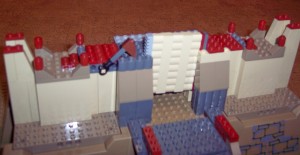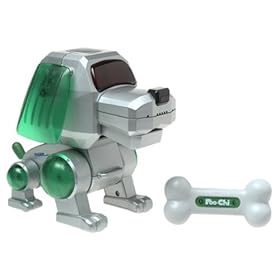When Nigel was first diagnosed at age three, and for some time after, he didn’t know how to play with toys. I bought him a kids’ train set; he laid his head to one side and stared at the tracks. He had no interest in pushing the train along, even if I showed him how. I bought him Hot Wheels cars and tried to teach him to “vroom” them around on the floor; he lined them up end-to-end along the back of the couch and cocked his head to one side to stare at them. I feared that his imagination would never develop; eleven years ago my only knowledge of autistic adults was, unfortunately, limited to Rain Man. I didn’t know what to expect for my son’s development.
But, thanks to a successful response to a modified ABA-based program for early intervention, and perhaps his own desire, Nigel learned to play with toys. He skipped over “vrooming” on the floor and went right to faster-paced, battery-operated Hot Wheels tracks. His imagination began developing with his desire to feed his stuffed animals. And then he discovered Lego.
I cannot say enough wonderful things about this toy that I loved in my own childhood. Yes, we’ve all gouged our feet on errant pieces and cursed its existence, but the fact is that no other toy has encouraged Nigel’s imagination to develop as much as Lego has. And for that, I love it.
And we have tubs of it. Literally. We progressed from a medium-sized tub to two of them, and then I just up and bought a huge industrial-sized tub with a hinged lid, which is now full. And still Nigel begs for more, especially since they’ve come out with the Indiana Jones series. Oh, my son. Be still, his heart. Lego and Indiana Jones – two of his favorite things. That’s all he wanted for Christmas. It’s like the Lego people somehow knew that this combination would make an autistic teen very, very happy.
So I bought him the sets that he wanted, as well as this book that he has not let out of his sight. Of course he has re-watched all four of the movies several more times since Christmas, just to make sure that he has all the nuances of every line down pat. And so, when he decided to watch the Troy DVD this afternoon, I was pleasantly surprised. “I’m studying the layout of the outer walls of Troy so that I can take apart the Temple of the Crystal Skull set and build Troy,” he told me.

And that, my friends, is what he did. He constructed the ancient city of Troy out of Lego, completely off the top of his head and of his own design. He built a wall with a ratcheted gate and levers to open it. Yes, he even built a Trojan Horse out of Lego. That is either one hell of a toy or one hell of an imagination. He’s come a long way from lining up Hot Wheels cars along the back of the couch and staring at them. And Rain Man? No offense, but you can keep your cards and toothpicks. Nigel’s got an imagination – and he’s not afraid to use it.

